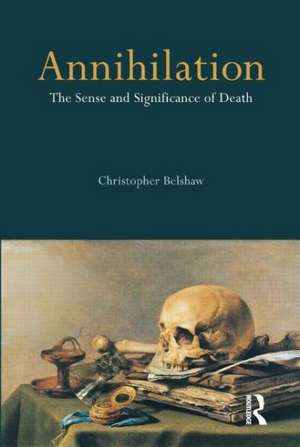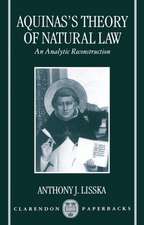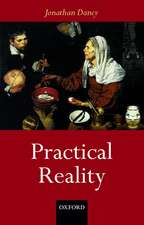Annihilation: The Sense and Significance of Death
Autor Christopher Belshawen Limba Engleză Paperback – 19 dec 2008
| Toate formatele și edițiile | Preț | Express |
|---|---|---|
| Paperback (1) | 369.73 lei 6-8 săpt. | |
| Taylor & Francis – 19 dec 2008 | 369.73 lei 6-8 săpt. | |
| Hardback (1) | 1003.93 lei 6-8 săpt. | |
| Taylor & Francis – 30 noi 2008 | 1003.93 lei 6-8 săpt. |
Preț: 369.73 lei
Nou
Puncte Express: 555
Preț estimativ în valută:
70.76€ • 73.10$ • 58.89£
70.76€ • 73.10$ • 58.89£
Carte tipărită la comandă
Livrare economică 26 martie-09 aprilie
Preluare comenzi: 021 569.72.76
Specificații
ISBN-13: 9781844651351
ISBN-10: 1844651355
Pagini: 288
Dimensiuni: 156 x 234 x 230 mm
Greutate: 0.45 kg
Ediția:New.
Editura: Taylor & Francis
Colecția Routledge
Locul publicării:Oxford, United Kingdom
ISBN-10: 1844651355
Pagini: 288
Dimensiuni: 156 x 234 x 230 mm
Greutate: 0.45 kg
Ediția:New.
Editura: Taylor & Francis
Colecția Routledge
Locul publicării:Oxford, United Kingdom
Public țintă
Postgraduate and UndergraduateCuprins
1. Death 2. Definitions 3. Human beings 4. Is it bad to die? 5. Circumstances and degrees 6. Posthumous harms 7. An Asymmetry 8. Numbers 9. Cheating death Notes References
Recenzii
A wonderful book. Belshaw writes both clearly and elegantly, and does an excellent job of outlining the views of others so that the framework of the contemporary debate is clear, evaluating them, and then developing distinctive views of his own. Annihilation is one of those rare books that both makes significant contributions to the debate of which it is a part, and yet which is still accessible enough to be read by all with an interest in its topic. It is highly recommended." – Journal of Applied Philosophy
"Belshaw helpfully lays out the most important issues and critically discusses alternative proposals in the literature. Often his critiques are compelling, and they are always worth careful attention. The book is chock full of argumentation that frequently calls into question attractive views that are deemed plausible (and defended) by other philosophers. Even when Belshaw is not entirely convincing, his discussions are invariably subtle, sophisticated and illuminating. A very fine book. It is highly recommended." – Notre Dame Philosophical Reviews
"Engaging and insightful. A good book. ... It will interest many thoughtful people, especially those who have spent restless nights thinking about life's ending." - Steven Luper, The Philosophical Quarterly
"A very good book. It is clearly written. The structure of the discussion and the distinctions made aid the navigation of the subject matter. Where Belshaw engages with other writers, his criticisms are sharp and largely persuasive. His own views are well argued for. Many of the conclusions he reaches are hard to disagree with. It is apparent to the reader that Belshaw is thinking carefully and deeply not just about the subject matter but about how to do philosophy. . . an interesting and provocative book." – Journal of Value Inquiry
"A very good book. It addresses many of the most interesting and important philosophical issues concerning death, is well-informed by the relevant literature, and offers Belshaw’s distinctive and suggestive views on a range of issues. Belshaw offers a nice combination of philosophical rigour and a crisp, accessible writing style that should give the book a broad appeal." – John Fischer, University of California, Riverside, USA
"Belshaw's premise is that life is worthwhile, but, in the final analysis, the only one who can make a judgement of the worth of that life is the person whose life it is. This question, of the worth of life, is thought provoking and makes a significant contribution to the ongoing dialogue on the value placed on humans as persons and the myriad of possible configurations of what it is (and could be) to be a human person." – Nursing Ethics
"Belshaw helpfully lays out the most important issues and critically discusses alternative proposals in the literature. Often his critiques are compelling, and they are always worth careful attention. The book is chock full of argumentation that frequently calls into question attractive views that are deemed plausible (and defended) by other philosophers. Even when Belshaw is not entirely convincing, his discussions are invariably subtle, sophisticated and illuminating. A very fine book. It is highly recommended." – Notre Dame Philosophical Reviews
"Engaging and insightful. A good book. ... It will interest many thoughtful people, especially those who have spent restless nights thinking about life's ending." - Steven Luper, The Philosophical Quarterly
"A very good book. It is clearly written. The structure of the discussion and the distinctions made aid the navigation of the subject matter. Where Belshaw engages with other writers, his criticisms are sharp and largely persuasive. His own views are well argued for. Many of the conclusions he reaches are hard to disagree with. It is apparent to the reader that Belshaw is thinking carefully and deeply not just about the subject matter but about how to do philosophy. . . an interesting and provocative book." – Journal of Value Inquiry
"A very good book. It addresses many of the most interesting and important philosophical issues concerning death, is well-informed by the relevant literature, and offers Belshaw’s distinctive and suggestive views on a range of issues. Belshaw offers a nice combination of philosophical rigour and a crisp, accessible writing style that should give the book a broad appeal." – John Fischer, University of California, Riverside, USA
"Belshaw's premise is that life is worthwhile, but, in the final analysis, the only one who can make a judgement of the worth of that life is the person whose life it is. This question, of the worth of life, is thought provoking and makes a significant contribution to the ongoing dialogue on the value placed on humans as persons and the myriad of possible configurations of what it is (and could be) to be a human person." – Nursing Ethics
Descriere
Explores two central questions at the heart of philosophy's engagement with death: what is death; and is it bad that we die? This title distinguishes literal and metaphorical uses of the term and offers a unified and biological account of death, denying that death brings about non-existence.















